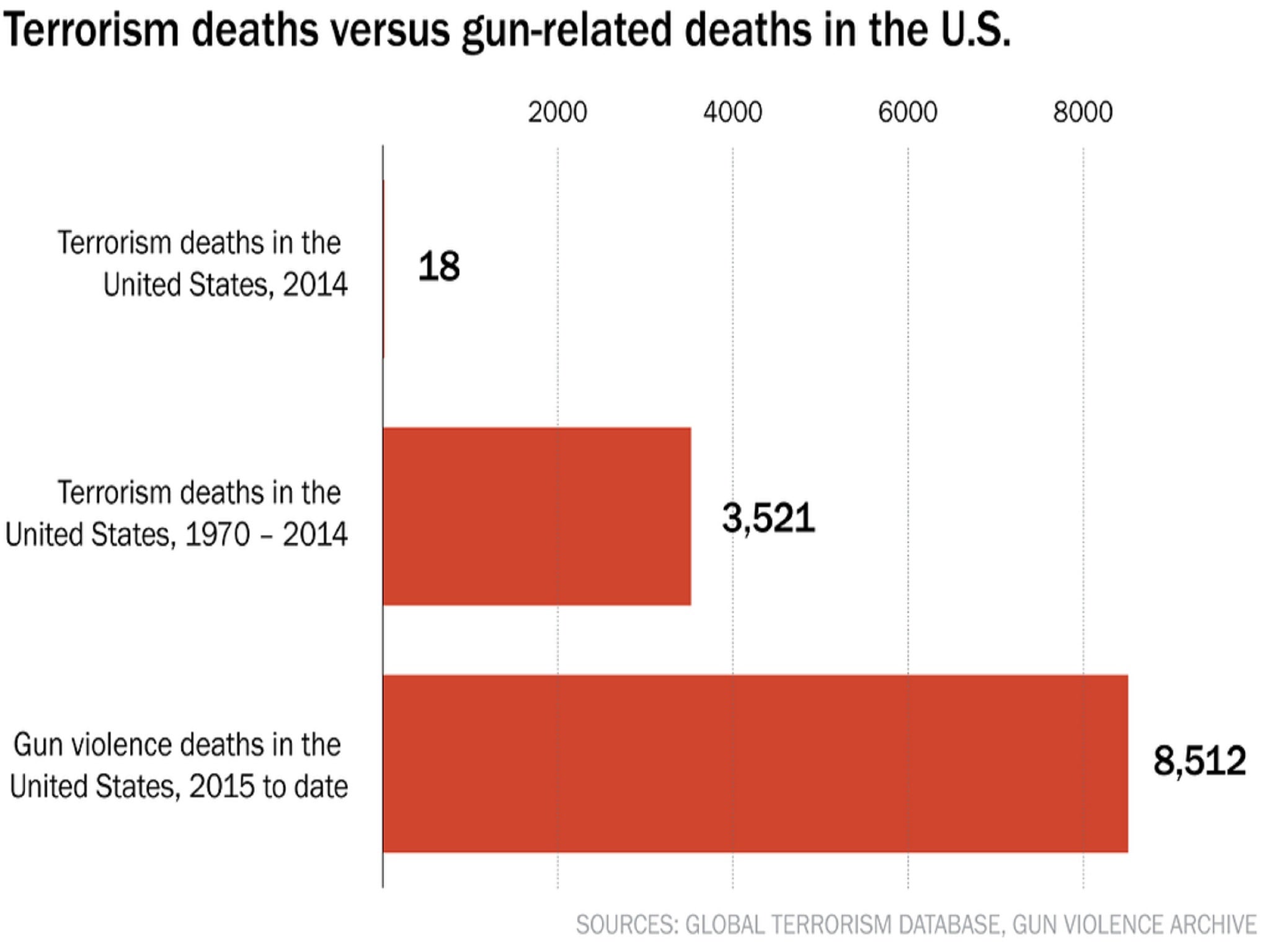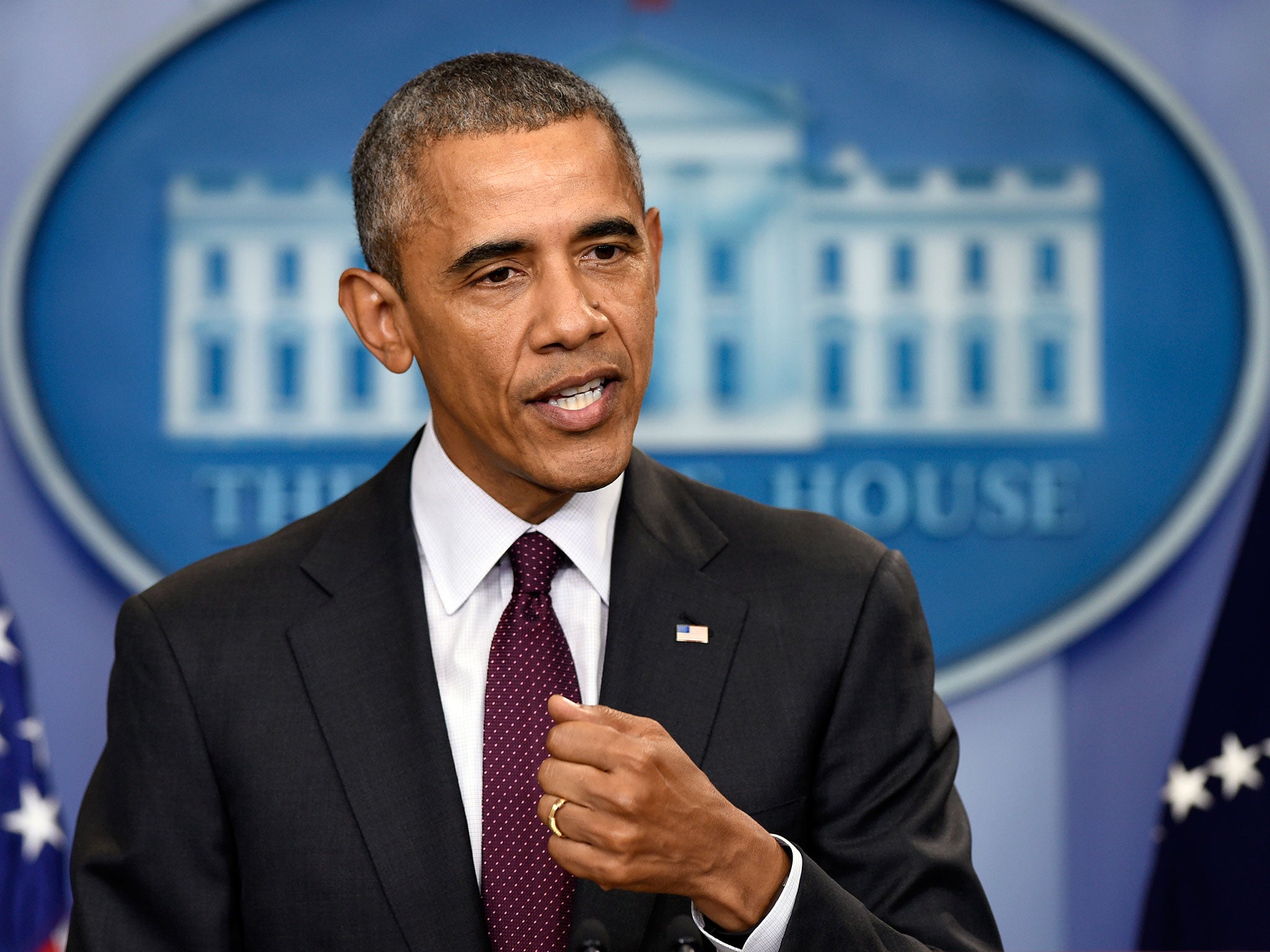Oregon college shooting: Figures reveal Obama is right that guns kill more Americans than terrorism
The President is correct to draw the comparison but the respective figures do not tell the whole story

In an interview with a local television station in Philadelphia in August, President Obama drew a distinction between the effects of gun violence and terrorism.
"What we know," he told ABC, "is that the number of people who die from gun-related incidents around this country dwarfs any deaths that happen through terrorism."
Outside of the context of the interview, it's hard to know what point Obama was hoping to make. It's fairly safe to assume, though, that he was contrasting the amount of energy and resources focused on the threat of terrorism in the United States with the amount of attention paid to gun violence.
It's incontrovertibly true that more people in America die from gun violence each year than die from terrorism. How "terrorism" is defined can be tricky, as we've noted in the past, but we can look at data compiled by the Global Terrorism Database at the University of Maryland.
It estimates that 18 people died in terror attacks in the United States last year — of 3,521 in total between 1970 and 2014. By comparison, the non-profit Gun Violence Archive figures that 9,948 people have been killed by gun violence so far in 2015.
That appears to hold true globally, as well. International terrorism deaths have increased over the last few years, the result of the conflict in the Middle East. But comparing data from the Global Terrorism Database to the United Nations Office on Drugs and Crime -- data that doesn't even include every country, looks only at gun homicides, and includes only a handful of countries for 2010 -- the discrepancy is clear.
So: Obama's factual point is accurate. His political one — assuming we're understanding it correctly — is iffier.
The data above probably say more about the small effect of terrorism than it does about the large effect of gun violence. Gun violence is real and pervasive, of course, but you could make the same point about fatalities that result from car crashes or from heart disease. The number of people who die from those things dwarfs the number of deaths from terrorism, too.

Using data from the Insurance Institute for Highway Safety (as of 2013) and estimates from the American Cancer Society for 2015, we can compare those factors to 2014 terrorism.
There are a lot of other factors that can be overlaid here to add some grey space: preventability, trends, definitions. Regardless, it's clear that terrorism holds an outsized role in political debate for the demonstrated threat it poses to American citizens. It's less clear, using solely the metric of annual deaths, that gun violence should then necessarily be the first priority.
- This story was posted on the Washington Post website on August 27. In the wake of President Obama's comments comparing terror deaths to gun deaths following the shooting in Oregon, it is republished here with updated figures
Join our commenting forum
Join thought-provoking conversations, follow other Independent readers and see their replies
0Comments